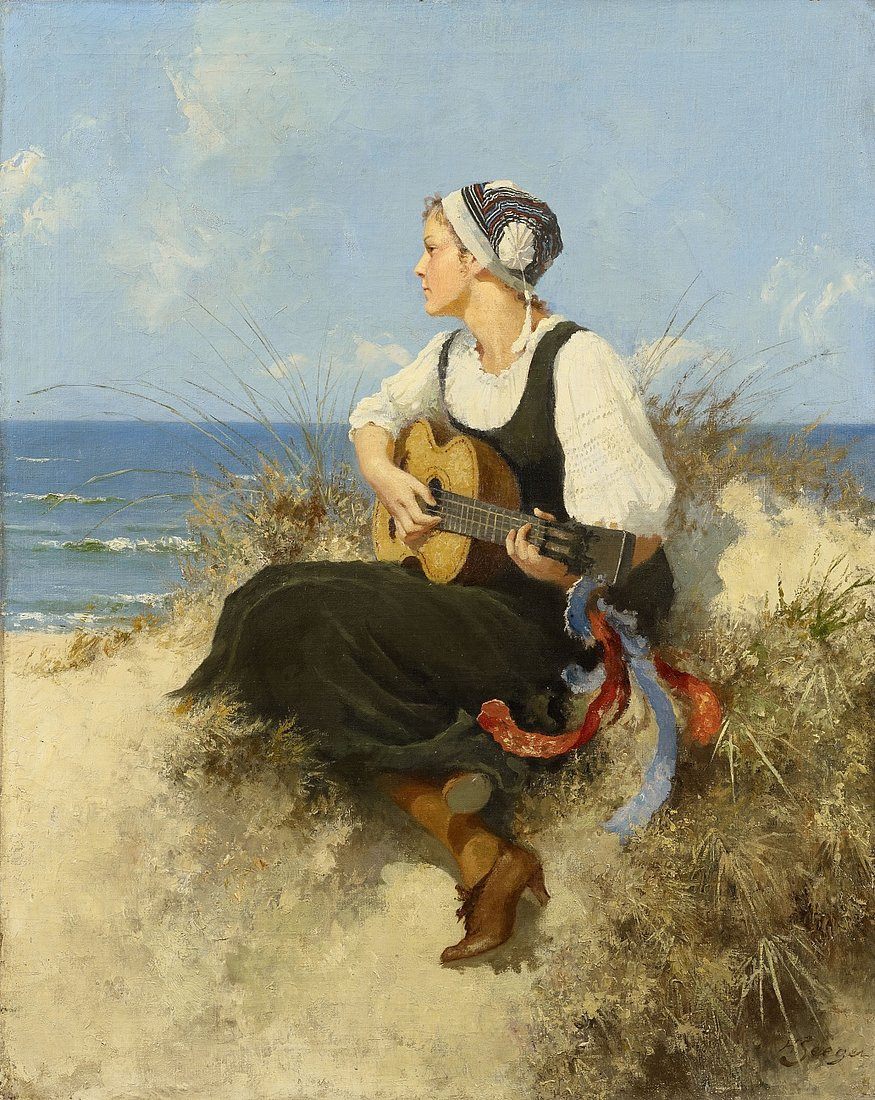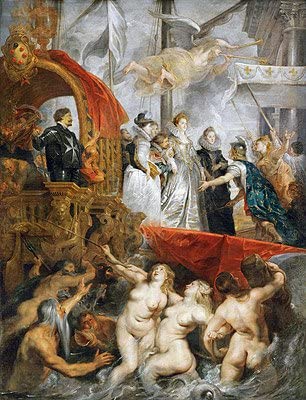De Ramsgate à Anvers
À cette côte anglaise
J’ai donc fait mes adieux
Et sa blanche falaise
S’efface au bord des cieux!
Que la mer me sourie!
Plaise aux dieux que je sois
Bientôt dans ta patrie,
Ô grand maître anversois!
Rubens! à toi je songe,
Seul peut–être et pensif
Sur cette mer où plonge
Notre fumeux esquif.
Histoire et poésie,
Tout me vient à travers
Me mémoire saisie
Des merveilles d’Anvers.
Cette mer qui sommeille
Est belle comme aux jours,
Où, riante et vermeille,
Tu la peuplais d’Amours.
Ainsi ton seul génie,
Froid aux réalités,
De la mer d’Ionie
Lui prêtait les clartés,
Lorsque la nef dorée
Amenait autrefois
Cete reine adorée
Qui s’unit aux Valois,
Fleur de la Renaissance,
Honneur de ses palais, —
Qu’attendait hors la France
Le coupe–tête anglais!
Mais alors sa fortune
Bravait tous les complots,
Et la cour de Neptune
La suivait sur les flots.
Tes grasses Néréides
Et tes Tritons pansus
S’accoudaient tout humides
Sur les dauphins bossus.
L’Océan qui moutonne
Roulait dans ses flots verts
La gigantesque tonne
Du Silène d’Anvers,
Pour ta Flandre honorée
Son nourrisson divin
À sa boisson ambrée
Donna l’ardeur du vin! —
Des cieux tu fis descendre
Vers ce peuple enivré,
Comme aux fêtes de Flandre,
L’Olympe en char doré,
Joie, amour et délire,
Hélas! trop expiés!
Les rois sur la navire
Et les dieux à leurs pieds! —
Adieu, splendeur finie
D’un siècle solennel!
Mais toi seul, ô génie!
Tu restes éternel.
From Ramsgate to Antwerp
To the far English coast
I’ve said my goodbyes.
Its white cliffs are lost
at the brink of the skies.
Smile, waves! and gods, grant we’re p–
arked soon on the strand,
at anchor at Antwerp,
in Rubens’s land!
This lugger is pitching,
and rolling, and stinking.
I’m skulking, and retching:
yet of you, sir, I’m thinking!
By the past I’m inspired,
by verse, and your canvas;
my memory’s fired
by the marvels of Anvers.
They laughed and they shone,
those somnolent waves,
that in days dead and gone
you peopled with Loves.
A genius alone, you
disdained what was true,
put the seas of Ionia,
so bright and so blue.
In a gilded careen
she came alongside,
the darling Scots queen,
for the Dauphin, a bride.
A flower of learning,
a court of renown:
then England, returning
an axe for a crown.
At first her good fortune
survived every snare:
by courtiers of Neptune
the glass was set fair.
Your Tritons paunch–tumid,
your sea-nymphs well–stacked,
were lounging all humid
on dolphins round–backed.
The sea–god’s retainers
let the green frothing sea roll
to the Scheldt, for Silenus,
a very big barrel.
He honoured your Anvers
with liquors divine,
to her brewmaster’s ambers
gave courage of wine!
To the Flemish Kermesse
you brought down Olympus
in a golden calèche
on a heavenly nimbus.
Joy, love, and the revel,
more bitter than sweet:
twin crowns on the vessel,
the gods at their feet!
Farewell to past splendours
And pageant of years.
Great master of Flanders,
Your genius endures!

 Nerval imagines a Rubens picture like this actual one of Maria de' Medici arriving at Marseille in 1600 (in Rubens's lifetime) to be Queen of France.[/caption]
Nerval imagines a Rubens picture like this actual one of Maria de' Medici arriving at Marseille in 1600 (in Rubens's lifetime) to be Queen of France.[/caption]